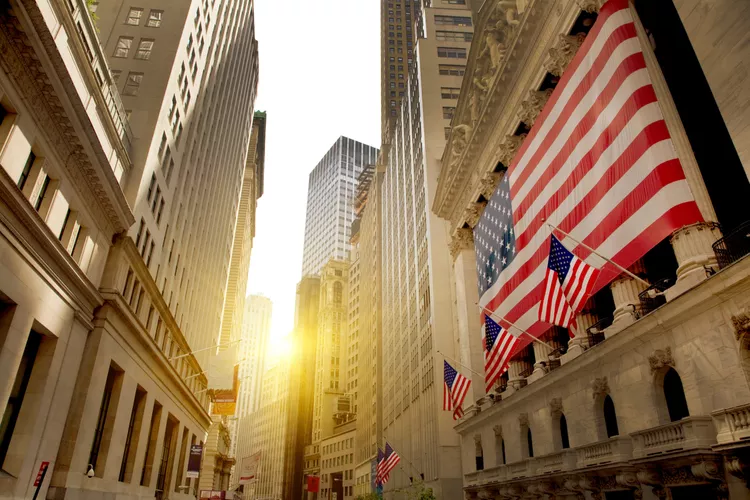
Laissez faire economics restricts the government’s intervention in the economy. The theory holds that an economy’s strength is when the government only protects individual rights.
The Key Takeaways
- Laissez faire economics is the theory that the government shouldn’t intervene in the market except to protect the inalienable right of individuals.
- Laissez faire policies require three components in order to be successful: capitalism, free market economics, and rational market theories.
- Laissez faire economics assumes free market forces will correctly price all investments.
- The U.S. has tried to implement laissez-faire policy, but it’s failed. However, the Constitution contains provisions that protect free markets.
Laissez-faire Economics: Definition and examples
Laissez faire economics is the theory that the government shouldn’t intervene in the market except to protect the inalienable right of individuals.
Let the market decide what it wants to do. If the laws of demand and supply are left to their own devices, they will effectively direct the production and distribution of goods and service. 1 The supply includes natural resources, labor, and capital. Demand includes the purchases of consumers, businesses and government.
Note:
Laissez faire is French and means “let alone” or “let it be”.
Herbert Hoover, the former U.S. president, was a proponent of laissez faire policies. He believed that an economy based upon capitalism would self-correct. In the face of 1929’s stock market crash, his commitment to a budget that was balanced turned the recession into a Great Depression.
Hoover focused his efforts on stabilizing the business, even when Congress pressed him to do so. He thought that the prosperity of businesses would trickle down to the average citizen. He reduced the tax rate by only one point to combat the Depression.
How Laissez-Faire Economics Work
In a laissez faire economy, the government’s only role is to prevent coercion of individuals. Theft and fraud prevent rational market forces to operate.
Capitalism
In capitalism, private companies own the production factors. Michael Douglas’ character Gordon Gekko in the 1987 film “Wall Street” summed up laissez-faire capitalist philosophy when he said: “Greed is good, for want of a better term.” “5
Gekko said that greed was a pure drive that “captures essence of evolution spirit”. In all its forms, greed has been the driving force behind mankind’s upward rise.
Gordon Gekko thought that government intervention had turned the United States into a “malfunctioning company”, but he believed that greed could save it, if the Government allowed it to run freely.
The former U.S. president Ronald Reagan once said that “government is not the answer to our problems.” The problem is government. Laissez-faire is when the government lets capitalism run its course as uninhibited as possible.
Free Market Economy
6 Companies sell their products at the highest prices that consumers are willing to pay. Shoppers are also looking for the best prices on the products and services that they desire. Workers offer their services for the highest wages possible, based on their skill level. Employers try to hire the best workers at the lowest compensation.
You can also read about the importance of this in
The free market, like an auction, sets prices that reflect the market value of goods and services. It provides an accurate picture of the supply and demand in any given time.
Market economies require private ownership of both goods and services. Owners are free to buy, sell, and produce on a competitive market. Competitive pressure is what keeps prices low. The pressure of competition also makes sure that goods and services are provided efficiently by society.
The law on demand ensures that prices increase as soon as the demand for an item increases. The competitors see that they can increase their profits by increasing the supply. This lowers the prices until only the most competitive competitors are left.
It protects the market. The government ensures that no one manipulates the market and that everyone has equal access to information.
Rational Market Theory
Laissez faire economics assumes free market forces will correctly price all investments.
The rational market theory is based on the assumption that investors make their decisions based on logic, not emotion. 7 Customers research every stock, bond or commodity. All buyers and all sellers have the same information. Smart investors would sell the stock if someone was trying to drive up the price. If the rational market theory holds true, even a well-run fund would not be able to outperform a index fund.
Note:
The rational market theory states that the stock price reflects all future value of an asset.
Investors use all information they have about current and future conditions to make their decisions. Future stock options are the best way to motivate a CEO. Research has shown that there is an inverse correlation between the CEO’s salary and company performance. 8
The rational market theory does not consider the emotional component of buying a single share. Investors often ignore the information and follow the herd, contrary to the rational market theory. In this instance, greed causes them to ignore dangerous warning signs. The 2007 Financial Crisis is a prime case in point.
Some notable opinions on laissez-faire economics
Ayn Rand, a Russian-American author, argues that laissez-faire capitalism never existed. She said that the government should only interfere to protect individual rights. She agreed with the Founding Fathers, that everyone has the right to life, freedom, property and the pursuit happiness.
Ludwig von Mises, an Austrian economist, argued that laissez faire economics led to the most productive outcomes. 11 The government couldn’t make all the economic decisions needed in a complicated society. The government should not interfere in the economy except to enforce the military draft. Von Mises believed that socialist must also fail.
Laissez-faire Policy in the United States
Rand and Mises have said that the United States never had a market free of government. In the end, laissez-faire policy has not worked.
The U.S. Constitution does protect the free-market:
- Article I, section 8 establishes a clause on copyright to protect innovation as a form of property.
- The freedom to choose and free enterprise are protected by Article I, sections 9 and 10.
- Both states prohibit each other from taxing the goods and services of their counterparts.
- Amendment IV protects property rights and people against unreasonable searches.
- Amendment V protects private property.
- Amendment XIV forbids the state to take away property without due legal process.
- The amendments IX andX limit the power of the government to interfere with rights that are not explicitly outlined in the Constitution.
Since the Constitution, many laws have been passed that favor certain segments and industries. Subsidies, tax breaks, and government contracts are all examples. The laws protecting individual rights are slow to catch-up. Many people still oppose laws that ban discrimination on the basis of gender or race. In some cases corporations may have more rights than people.











